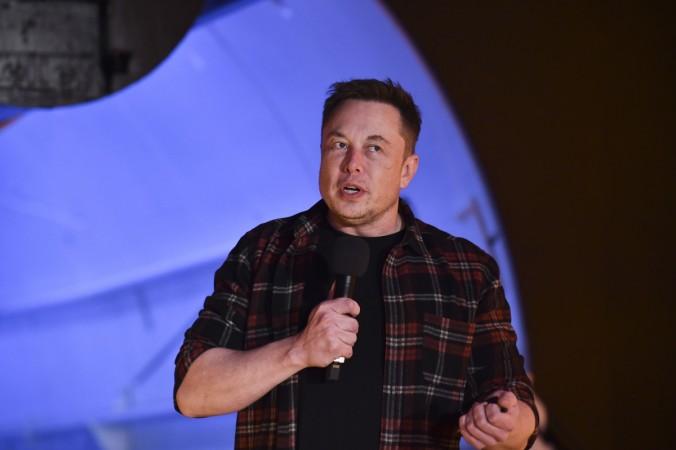
Tesla CEO Elon Musk is not new to odd Twitter behaviour and the frenzy that it creates. And he has kicked up a storm on the micro-blogging site once again changing his name from Elon Musk to "Elon Tusk."
The billionaire changed his name on Wednesday, February 27, afternoon and also put up an elephant emoji next to his new name. Musk then changed his profile picture and put up an image of Mars, which he has been speaking of colonising through SpaceX. In addition, Musk also promised to announce some Tesla "news" on Thursday, February 28, at 2 pm California time.
While Musk did not elaborate on what the "news" could be and a spokesperson for the company also didn't respond to Fox Business' request for comment, the tweet created quite some curiosity and Tesla shares gained 5.67 percent on Wednesday.
Some Tesla news
— Elon Tusk (@elonmusk) February 27, 2019
Thursday 2pm
— Elon Tusk (@elonmusk) February 27, 2019
After Musk teased the announcement, many believe that it could be about the Model Y SUV, which Tesla had earlier spoken about unveiling in March 2019. The CEO had in 2018 said that Tesla would unveil the model in March 15, 2019, but later stated that he made up the date as "the Ides of March sounded good." However, he added that March was most probably when the model would be unveiled.
"But consider it real," he added. "We could unveil Model Y anytime from late this year to mid next year, so March 15 is about right," he tweeted.
Meanwhile, Musk has raked up a fresh controversy with the Securities and Exchange Commission (SEC) calling the regulator "broken." Musk was responding to the SEC's accusation that the CEO had violated the terms of a court endorsed deal between him and the agency that he would not tweet any information that would affect the shares of the carmaker. On February 19, Musk had tweeted that Tesla would make 500,000 cars in 2019, but corrected the figure later and said it was about 400,000.
Meant to say annualized production rate at end of 2019 probably around 500k, ie 10k cars/week. Deliveries for year still estimated to be about 400k.
— Elon Tusk (@elonmusk) February 20, 2019
But the information caught the eye of the federal judge, who then gave Musk two weeks to explain why no action should be taken against him for disregarding his deal with the SEC. This, according to Charles Elson, a corporate governance specialist at the University of Delaware, is not something that can be easily ignored.
"No CEO would survive this," he told the Agence France-Presse, and Stephen Davis, a senior fellow at Harvard's program on Corporate Governance seems to agree. "If the board wishes to get ahead of the problem, they may have to take action as serious as relieving Musk of his executive responsibilities, at least for a period of time," Davis explained.
The SEC started an investigation into Musk and Tesla after the CEO announced on Twitter that he planned to take Tesla private and had even secured funding for the same. While this turned out to be a false information, several investors who had made bets against Tesla lost huge amounts of money.
As a result, the 47-year-old CEO stepped down as Tesla chairman and he and the company had to pay a $20 million penalty to settle fraud charges.













